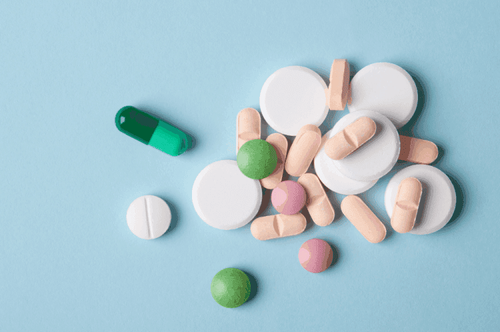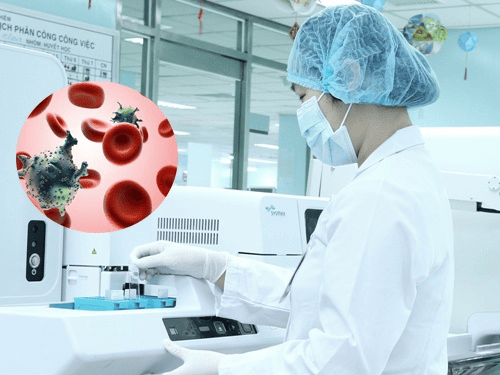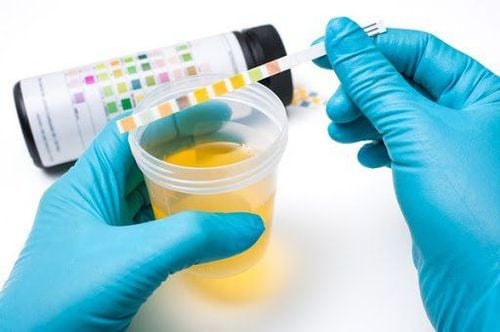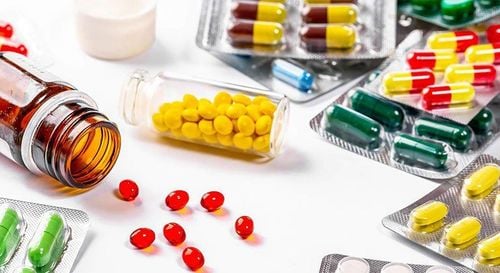This is an automatically translated article.
The article was professionally consulted by MSc Duong Van Sy - Department of Pediatrics - Neonatology, Vinmec Hai Phong International General Hospital. Uncle has 09 years of experience in the field of Pediatrics with strengths in examination, consultation and treatment of diseases in children; Emergency resuscitation, anti-poisoning for infants and children.Neonatal sepsis is a term for infectious pathological conditions occurring during the neonatal period, with pathogens acquired before, during or after birth. Early neonatal sepsis is an infection occurring within the first 3 days of life (≤ 72 h). This is a highly fatal disease (after neonatal acute respiratory failure). The incidence rate is 6/1000 live births (USA), 3-4 times higher in developing countries.
1. Newborn infection treatment protocol
1.1. Antibiotics against infections Antibiotic selectionFor early neonatal infections: Use 2 antibiotics in combination: Aminoside and β-lactamin. When there are no results of antibiogram, the child can use Penicillin or Ampicillin in combination with Gentamicin or Amikacin.
If the mother has been given antibiotics before, and the child is suspected of having an infection with bacteria resistant to Ampicillin (E.coli, Enterobacter) can choose: Ceftriaxone, Claforan, Imipenem in combination with Aminoside.
If staphylococci are suspected: combine 3 antibiotics: 3rd generation Cephalosporin + Vancomycin + Aminoside.
If Gram(-) bacilli are suspected: 3rd generation Cephalosporin + Imipenem. Sometimes Quinolones are combined with Aminosides or Polymyxins.
If anaerobic bacteria are suspected, choose combination metronidazole. Extensive, prolonged use of third-generation cephalosporins is a risk factor for Candida infections. If the child is taking antibiotics for a long time but the clinical condition worsens, then combine with an antifungal antibiotic of the group conazole. When the antibiogram is available, the antibiotic must be adjusted accordingly.
Commonly used antibiotic dose
Ampicillin: 75mg -100mg/kg/day. Cefotaxime: 100mg - 200mg/kg/day. Ceftriaxone: 50-100mg/kg/day. Amikacin: 15mg/kg/day. Gentamycine, Kanamycin: 4-5mg/kg/day. Vancomycin: 10mg/kg/day. Time to use antibiotics
Blood infection: 10 days Meningitis: 14-21 days Pneumonia: 7-10 days If bacteremia is suspected but blood culture (-) is suggested to use antibiotic combination lasting > 5 days If due to staphylococcus aureus: 3-6 weeks of treatment. When using Aminoside group can cause deafness, so do not use more than 7 days for infants, stop > 48 hours can use a new course.

With skin infections, pustules, umbilicus, abscesses, the necrotic tissue must be removed and washed with physiological saline. If there are many slits and cavities, they must be washed with hydrogen peroxide, dried and Betadine 2.5% topical antiseptic. Dot methylene blue on skin blisters or apply antibiotic cream. 1.3 Supportive therapy Body temperature balance If the child has a fever ≥ 38.5 degrees Celsius, then use Paracetamol: 10-15mg/kg/1 time, not more than 4 times/day.
If the baby has hypothermia < 36.5 degrees Celsius: Incubate with an incubator.
Balance water, electrolytes, acid-base Full oral nutrition, combined infusion of 50-100ml/kg/24 hours.
If there is hypoperfusion: Dopamine 5-15μg/kg/1 min to raise blood pressure.
Anti-acute respiratory failure Oxygen therapy, CPAP breathing, respiratory support.
Anti-coagulation disorders Fresh plasma, infusion of clotting factors, Vitamin K1. Platelet transfusion when platelets <50,000/mm3 with bleeding or platelets <30,000/mm3 even without bleeding.
Blood exchange Partial blood change in case of severe infection, reduces the toxin and bacteria concentration.
Immuno-enhancing drugs Human Immunoglobulin at a dose of 300-500 mg/kg/day x 3 days: effective in reducing the mortality rate of infected children.
2. How to prevent infections in babies

Pre-pregnancy prevention Mothers need to be vaccinated against Rubella at the unborn age to be infected Rubella Vaccinate against tetanus, hepatitis to avoid virus transmission. During pregnancy, mothers should have regular antenatal check-ups for early detection of dangerous diseases such as syphilis, hepatitis B, ... for early resolution without affecting the fetus. pediatric. When the mother has an infection such as a urogenital infection, a systemic infection, it must be treated at the root to avoid transmitting it to the child later. Ensure the mother a safe nutritional regime during pregnancy to increase the resistance of the mother and the baby, prevent malnutrition in the mother, prevent premature birth because premature babies are very susceptible to infection and mortality. due to infection in this subject accounted for about 12%. In addition, the mother also needs good body hygiene, avoiding scratches and infections. At the same time, it is necessary to handle cases of premature rupture of membranes, avoiding prolonged labor.
Prevention during delivery Doctors need to ensure sterility during delivery, medical tools when used must be ensured to avoid infection. Avoid obstetric complications such as asphyxia, injury during delivery. For pregnant women with difficult birth, prolonged labor, premature rupture of membranes, doctors should not examine the vagina repeatedly. Postpartum prevention A simple and effective measure to prevent infection in the baby is that the mother should wash her hands before and after caring for the newborn. Regularly clean the room, bathing equipment for the baby, keep the room ventilated, clean, and full of light so that germs do not have the conditions to multiply. Regularly clean the baby's skin, eyes, ears and navel. The most important thing is to breastfeed your baby exclusively for the first 6 months. Breast milk contains lgA antibodies that strengthen the immune system and protect the baby from infections and other dangerous diseases.
Postpartum infection is a disease that causes high mortality in infants. The main reason is that children are not detected and treated in time. Therefore, parents need to carefully observe the children's expressions. If there are abnormal signs, the child should be taken to a medical facility for examination and treatment.
As a key area of Vinmec Health system, Pediatrics Department always brings satisfaction to customers and is highly appreciated by industry experts with:
Gathering a team of top doctors and nurses in Pediatrics : consists of leading experts with high professional qualifications (professors, associate professors, doctorates, masters), experienced, worked at major hospitals such as Bach Mai, 108.. Doctors All doctors are well-trained, professional, conscientious, knowledgeable about young psychology. In addition to domestic pediatric specialists, the Department of Pediatrics also has the participation of foreign experts (Japan, Singapore, Australia, USA) who are always pioneers in applying the latest and most effective treatment regimens. . Comprehensive services: In the field of Pediatrics, Vinmec provides a series of continuous medical examination and treatment services from Newborn to Pediatric and Vaccine,... according to international standards to help parents take care of their baby's health from birth to childhood. from birth to adulthood Specialized techniques: Vinmec has successfully deployed many specialized techniques to make the treatment of difficult diseases in Pediatrics more effective: neurosurgery - skull surgery, stem cell transplantation. blood in cancer treatment. Professional care: In addition to understanding children's psychology, Vinmec also pays special attention to the children's play space, helping them to have fun and get used to the hospital's environment, cooperate in treatment, improve the efficiency of medical treatment.
Please dial HOTLINE for more information or register for an appointment HERE. Download MyVinmec app to make appointments faster and to manage your bookings easily.














